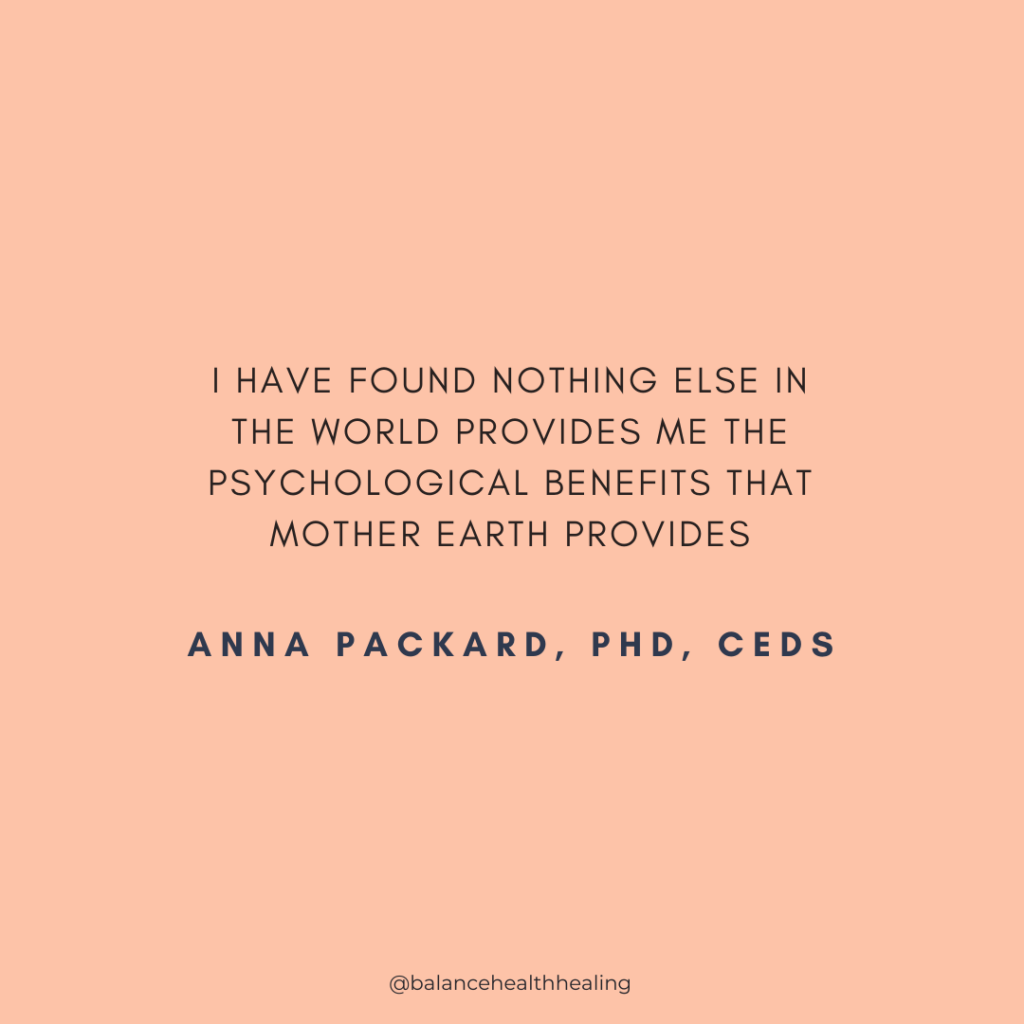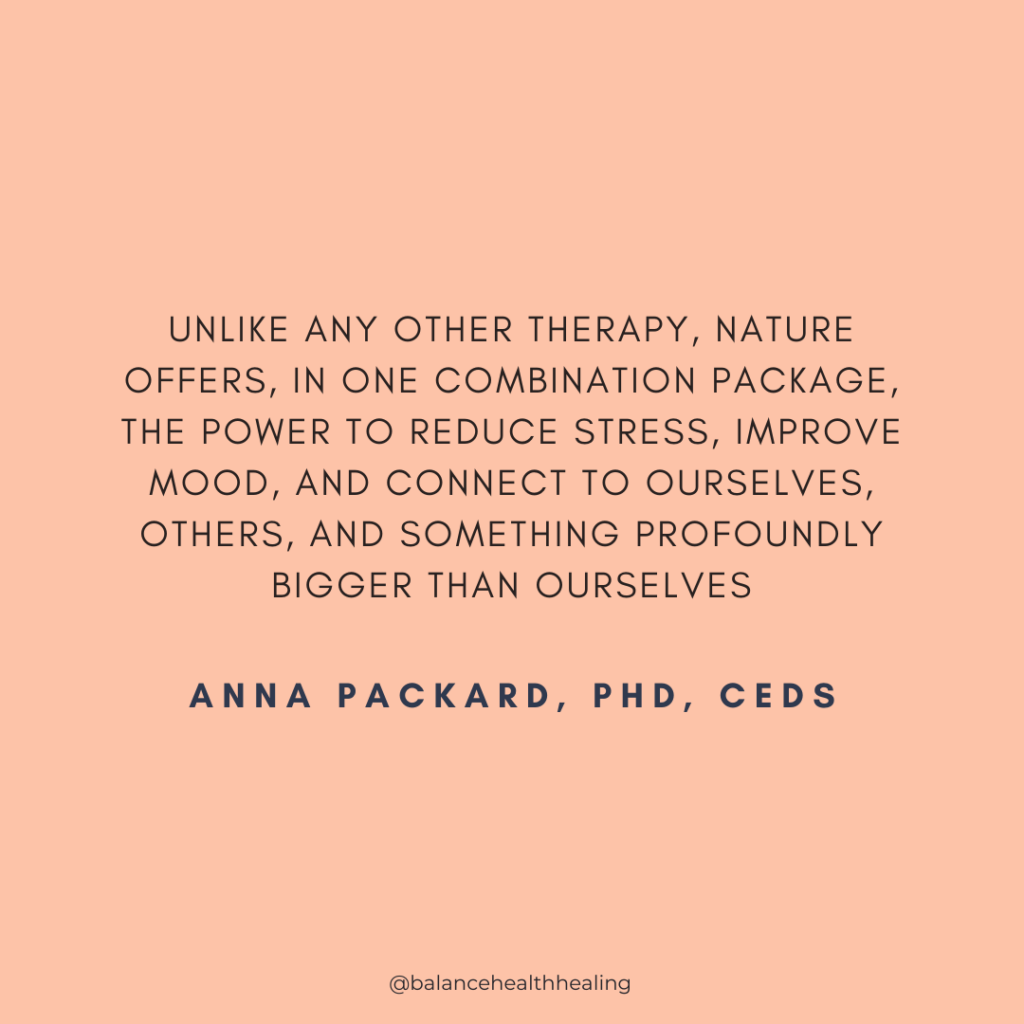I am a summer lover. I try to convince myself I love all seasons but summer is the most intuitive season for me to love. Summer calls me outside, and Mother Earth invites me to play. There isn’t much that makes me happier than exploring and hiking the Wasatch Wilderness at the height of summer. It is in the mountains that I most commonly experience a sense of awe. Awe is one of my favorite emotions to feel. Awe is one of those emotions that can be hard to describe, but we know it when we feel it. It can feel like a sense of wonder, inspiration, transcendence, presence, complete absorption in the present experience, humility in the awareness of something magnificent, or something that invites us beyond our normal lived experience and into something more sublime.
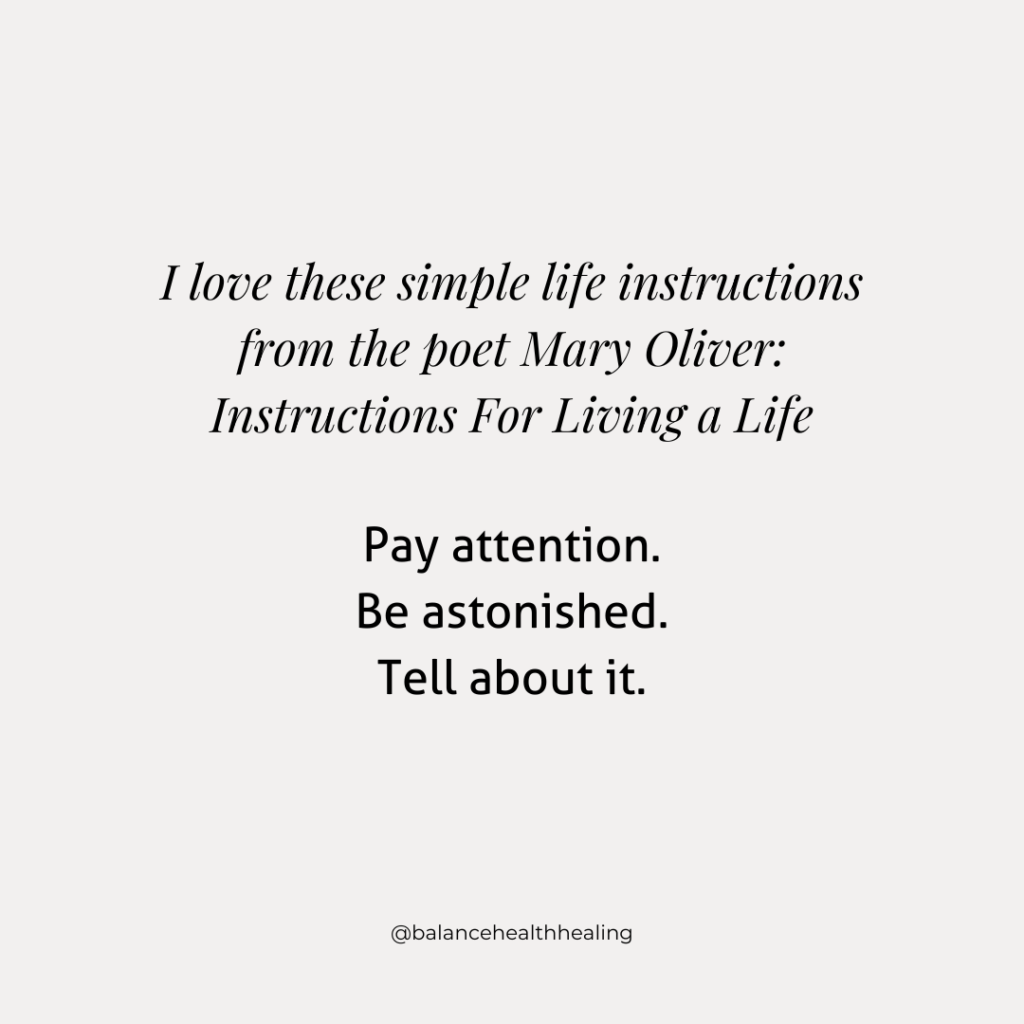 Awe can be experienced in a variety of contexts, from witnessing great acts of kindness, natural phenomena, artistic masterpieces, music, spiritual practices, meditation, communal gatherings, and celebrations, to name a few. The summertime, with its longer days and inviting weather, offers a perfect canvas for cultivating these awe-inspiring experiences.
Awe can be experienced in a variety of contexts, from witnessing great acts of kindness, natural phenomena, artistic masterpieces, music, spiritual practices, meditation, communal gatherings, and celebrations, to name a few. The summertime, with its longer days and inviting weather, offers a perfect canvas for cultivating these awe-inspiring experiences.
Awe is more than just a fleeting feeling of amazement. It has significant psychological and physiological benefits. Awe is known to increase feelings of happiness and well-being, reduce stress and anxiety, increase a sense of connection with others, boost creativity, and increase gratitude, and mindfulness.
While awe is a feeling, we can cultivate experiences that invite awe and also attune ourselves to it so that it becomes a more common experience for us. Dacher Keltner is a researcher on awe and the author of the new book: Awe: The New Science of Everyday Wonder and How It Can Transform Your Life. He describes that people who frequently experience awe have traits of open-mindedness and the ability to be absorbed or get lost in experiences. We can cultivate these traits through practicing curiosity and mindfulness. We can look for and be open to moments of awe. Indeed, we can find awe in everyday moments if we look for them.
I love these simple life instructions from the poet Mary Oliver:
Instructions For Living a Life:
Pay attention.
Be astonished.
Tell about it.
Awe is a powerful emotion that can enrich our lives in myriad ways. By intentionally seeking out awe-inspiring experiences, especially during the summertime, we can cultivate a deeper appreciation for the world around us, feel connected to ourselves and others, and enhance our overall well-being. Whether through nature, culture, travel, mindfulness, or adventure, opportunities for awe are abundant and waiting to be discovered. Embrace the summer and let the world amaze you.
Here are some ways to create these moments:
Explore nature (my personal favorite) Nature is one of the most consistent sources of awe. Whether it’s a majestic mountain range, a serene forest, or the vast ocean, natural landscapes have a way of making us feel small in the best way.
- Hiking: Find a local trail and spend an hour to a day hiking. The options are endless if you live in Utah, and the terrain varies from mountain peaks to valleys full of wildflowers and rushing waterfalls.
- Star gazing: Stargazing in a remote area, away from city lights, can be a humbling and awe-inspiring experience.
- Water Activities: Kayaking, paddleboarding, or even just a swim in a natural body of water can provide a refreshing and awe-inducing connection with nature.
Attend Cultural Events: Summer is often filled with festivals, concerts, and outdoor performances that can evoke a sense of wonder and connection with others. For example, this September, I hope to make it to the Night Lights Lantern Festival, where I can have my own real life Disney’s Tangled moment. Other ideas include:
- Music festivals: The collective energy of a live music performance, especially in an open-air setting, can be profoundly moving. Deer Valley in Park City always hosts a summer music festival, and several venues all around Utah host outdoor summer concerts.
- Art Installations: Visit outdoor art exhibits or public installations that invite interaction and contemplation. This can even include events as simple and local as Farmer’s Markets, where artists often show and sell their wares.
Travel and Discover: Traveling to new places, whether near or far, can offer fresh perspectives and novel experiences. This doesn’t have to be expensive or grandiose. Plan a road trip to explore unfamiliar destinations. The journey itself, with its changing landscapes and spontaneous discoveries, can be awe-inspiring. Utah has many potentially awe inspiring locations easily accessed by car. For example, I hope to visit the salt flats for a sunset sometime soon and finally see the spiral jetty in the Great Salt Lake. We are so close to several National Parks as well!
Mindful Practices. Good grief…I wonder when I will ever be consistent in my meditation practice. It’s something that is so hard for me to do…even though I know it’s very good for me. Meditation feels more doable and inviting when I do it outdoors. But meditation is also just one form of mindfulness. Practicing mindfulness…paying attention to the present moment, invites that curiosity and openness for awe in the everyday moments.
Document moments of awe.
- Photography: I love capturing moments of beauty and wonder on camera. This practice encourages me to look at the world with fresh eyes and find awe in the details. And I can remember and relive the sense of awe I felt when I reflect on the photos I captured.
- Journal: For me, this can be how I “tell about it” from Mary Oliver’s life instructions. Reflecting on the context of moments of awe, how I felt, and what the experience meant to me can amplify its importance and translate the experience into more meaning for me.
What other ideas do you have?
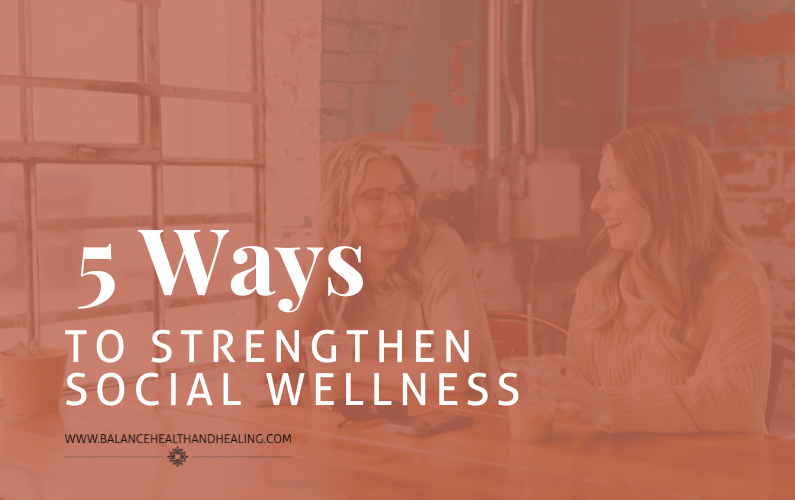
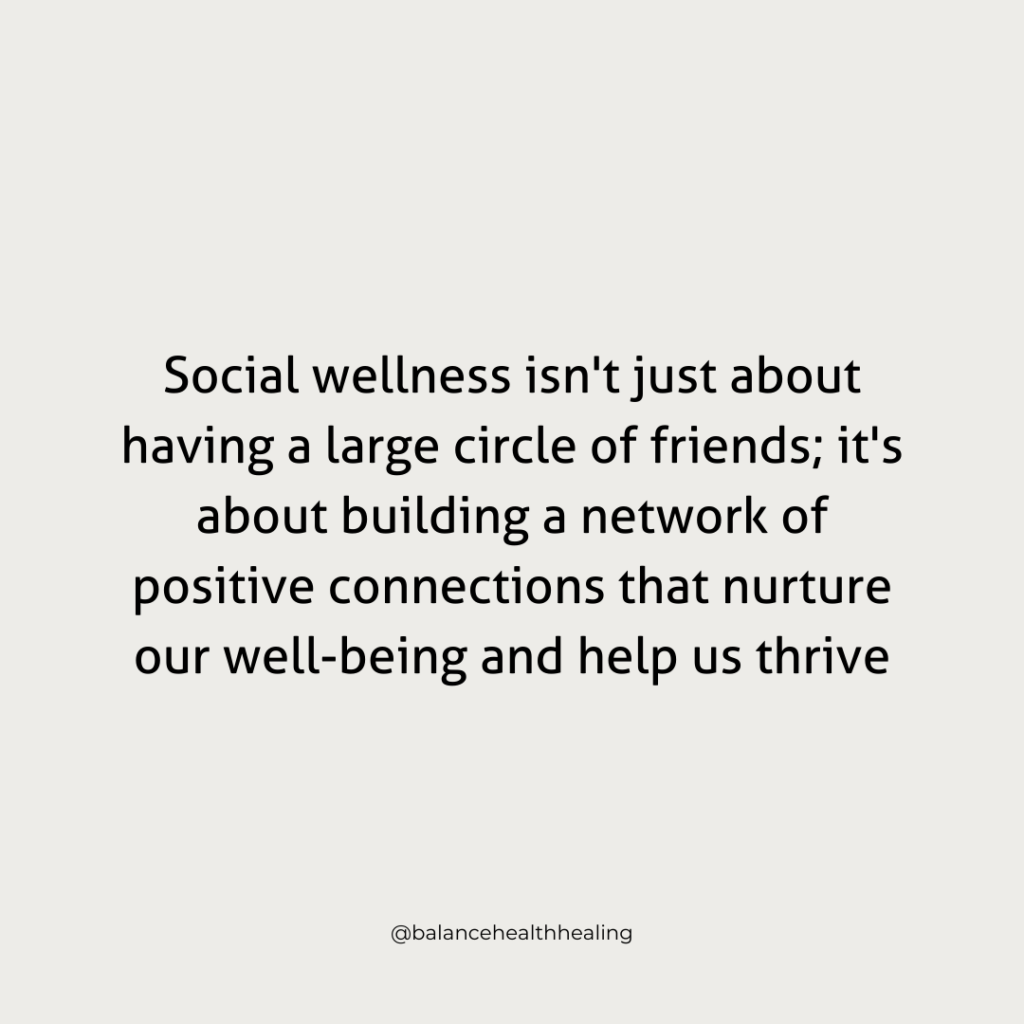
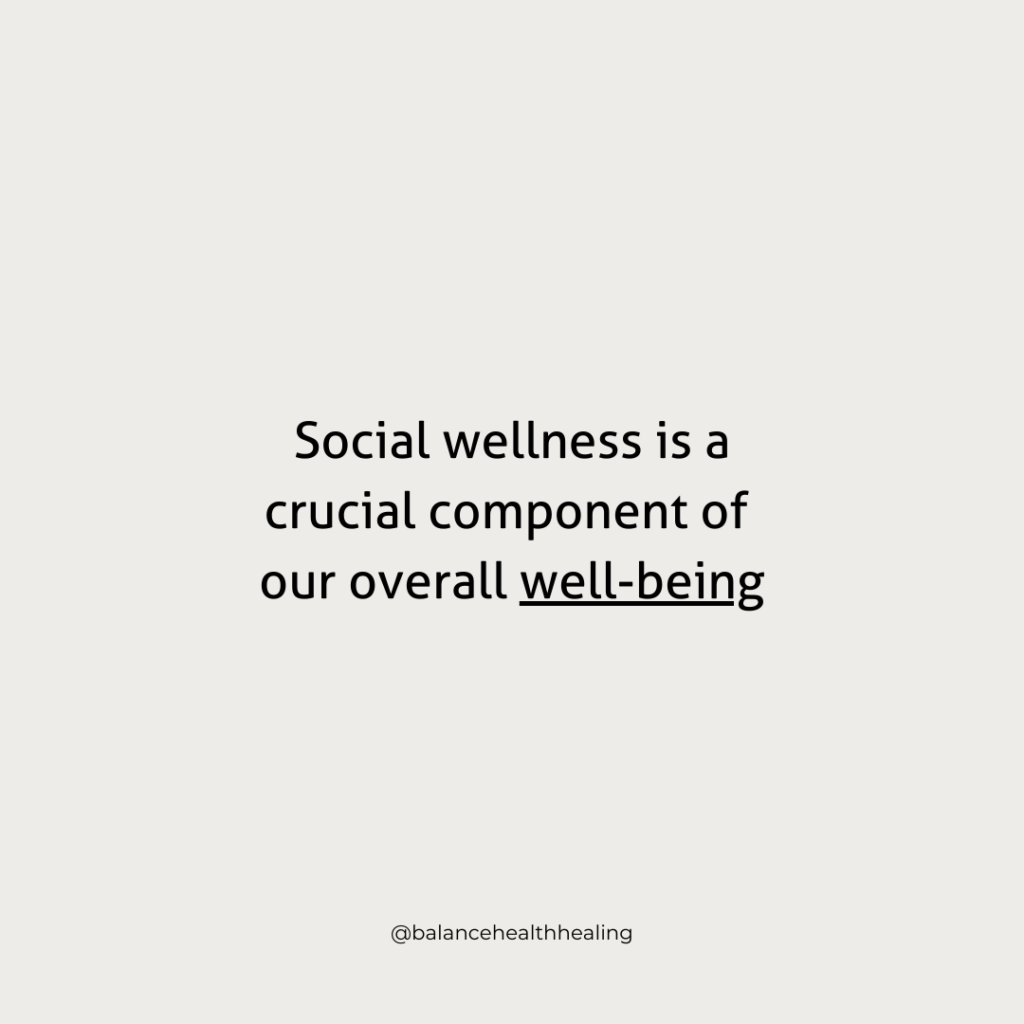 In this digital age, we sometimes overlook the importance of our immediate community. Make an effort to get to know your neighbors. A friendly chat or a simple wave can create a more supportive and connected neighborhood.
In this digital age, we sometimes overlook the importance of our immediate community. Make an effort to get to know your neighbors. A friendly chat or a simple wave can create a more supportive and connected neighborhood. 

 Awe can be experienced in a variety of contexts, from witnessing great acts of kindness, natural phenomena, artistic masterpieces, music, spiritual practices, meditation, communal gatherings, and celebrations, to name a few. The summertime, with its longer days and inviting weather, offers a perfect canvas for cultivating these awe-inspiring experiences.
Awe can be experienced in a variety of contexts, from witnessing great acts of kindness, natural phenomena, artistic masterpieces, music, spiritual practices, meditation, communal gatherings, and celebrations, to name a few. The summertime, with its longer days and inviting weather, offers a perfect canvas for cultivating these awe-inspiring experiences. 
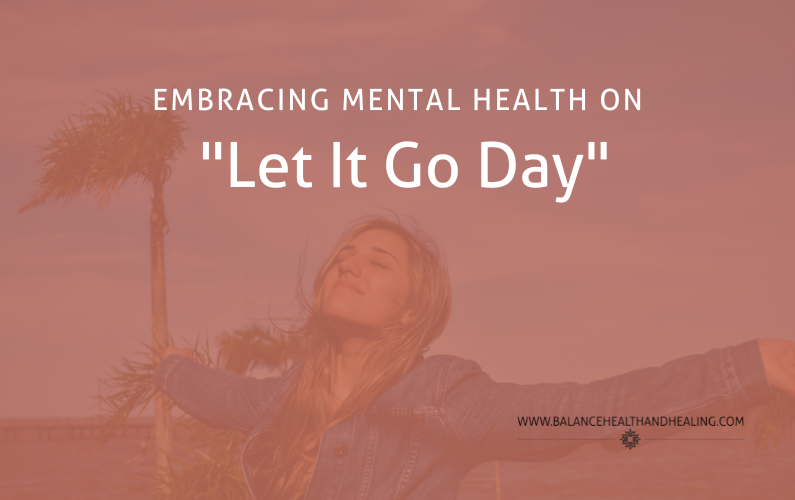
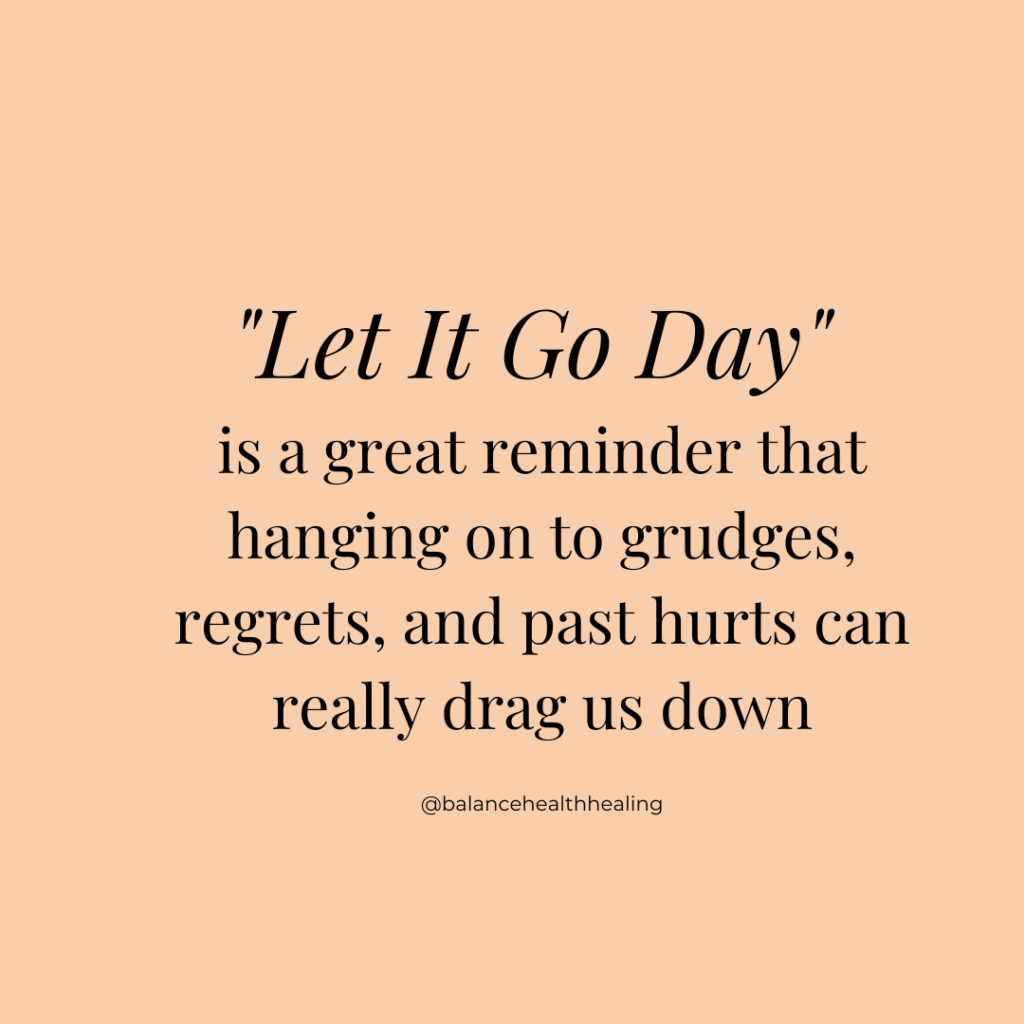 “Let It Go Day” is a great reminder that hanging on to grudges, regrets, and past hurts can really drag us down. These negative feelings can cause stress, anxiety, and depression. Letting go doesn’t mean forgetting or ignoring what happened; it’s about acceptance and acknowledgment while releasing its hold on our present and future.
“Let It Go Day” is a great reminder that hanging on to grudges, regrets, and past hurts can really drag us down. These negative feelings can cause stress, anxiety, and depression. Letting go doesn’t mean forgetting or ignoring what happened; it’s about acceptance and acknowledgment while releasing its hold on our present and future.
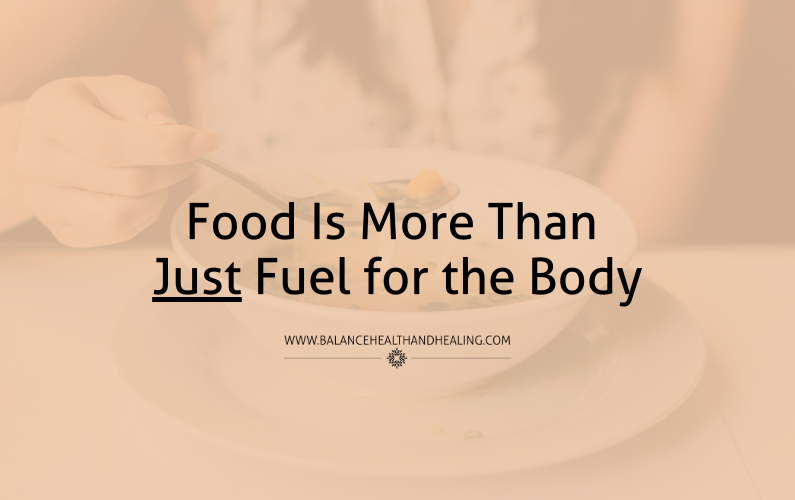
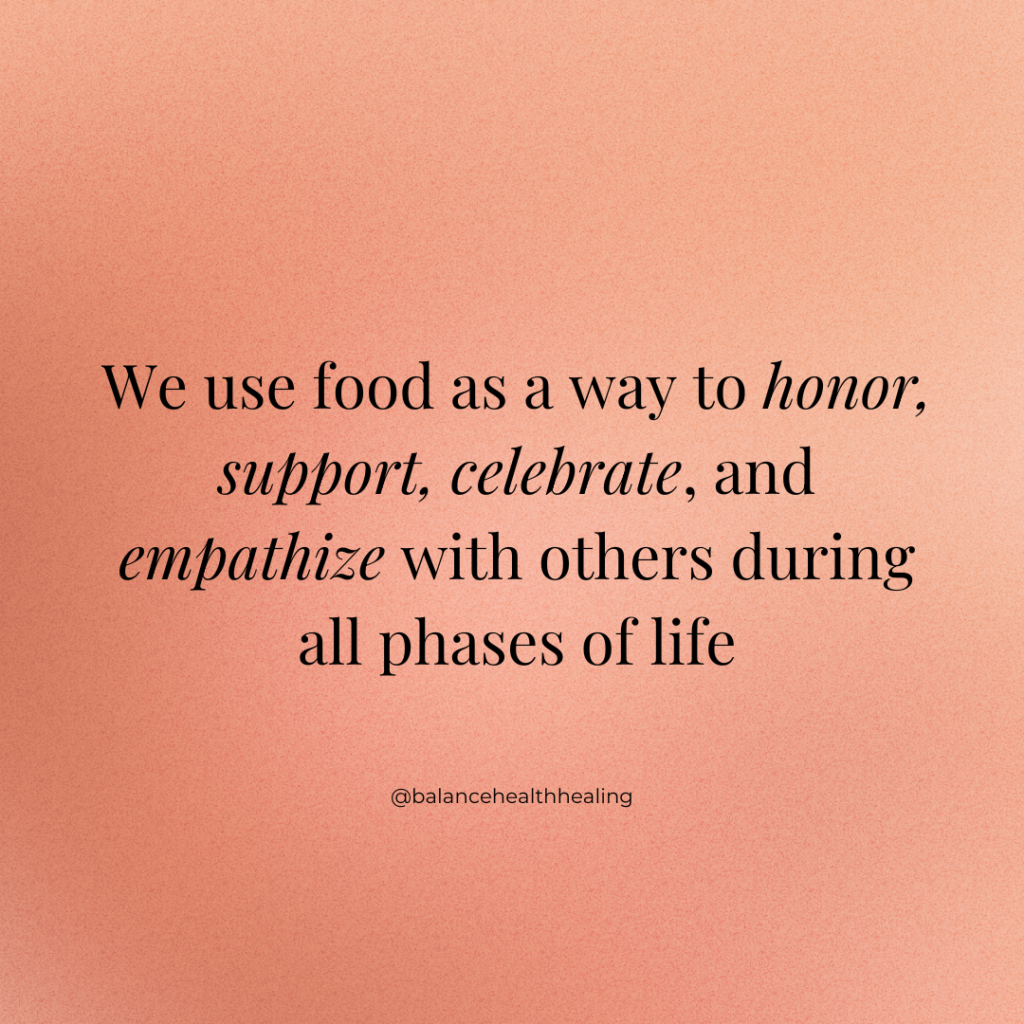 Throughout our lives, we as humans experience a variety of emotions. Whether they are comfortable emotions such as feeling powerful, inspired, happy, or heavier emotions such as feeling insecure, overwhelmed, or disappointed, food can be a powerful way to find connection throughout it all.
Throughout our lives, we as humans experience a variety of emotions. Whether they are comfortable emotions such as feeling powerful, inspired, happy, or heavier emotions such as feeling insecure, overwhelmed, or disappointed, food can be a powerful way to find connection throughout it all. 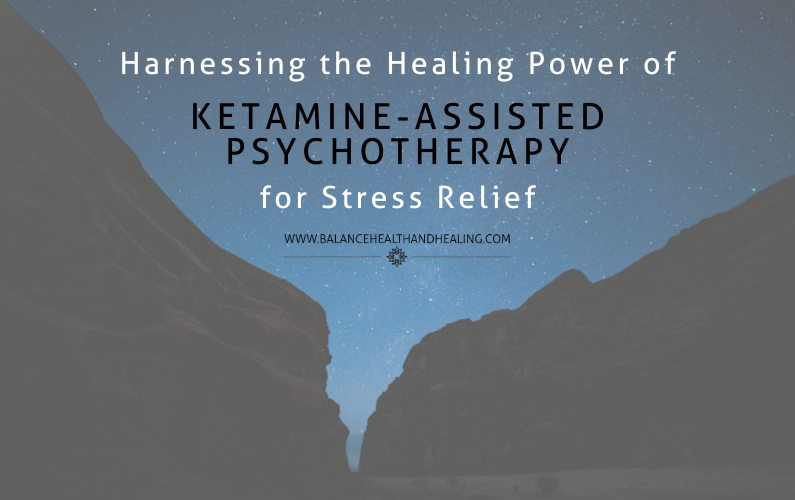
 Ketamine, originally developed as an anesthetic, has garnered attention in recent years for its potential in treating various mental health conditions, including depression, anxiety, and PTSD, and its role in stress management is equally noteworthy.
Ketamine, originally developed as an anesthetic, has garnered attention in recent years for its potential in treating various mental health conditions, including depression, anxiety, and PTSD, and its role in stress management is equally noteworthy. 
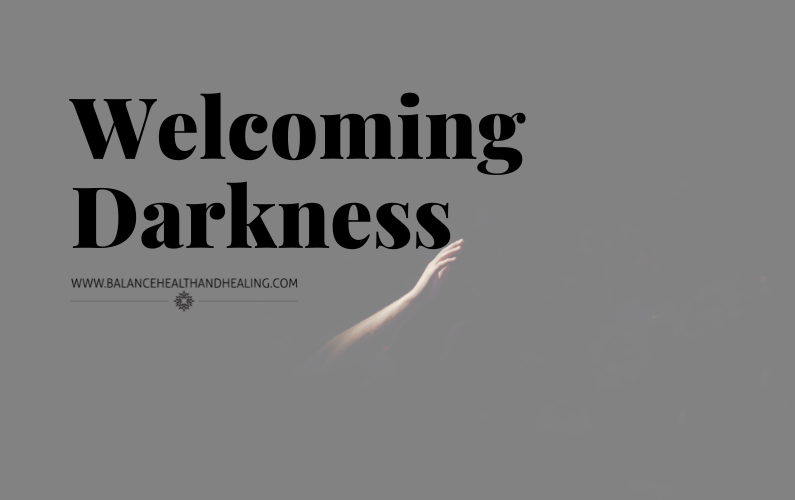
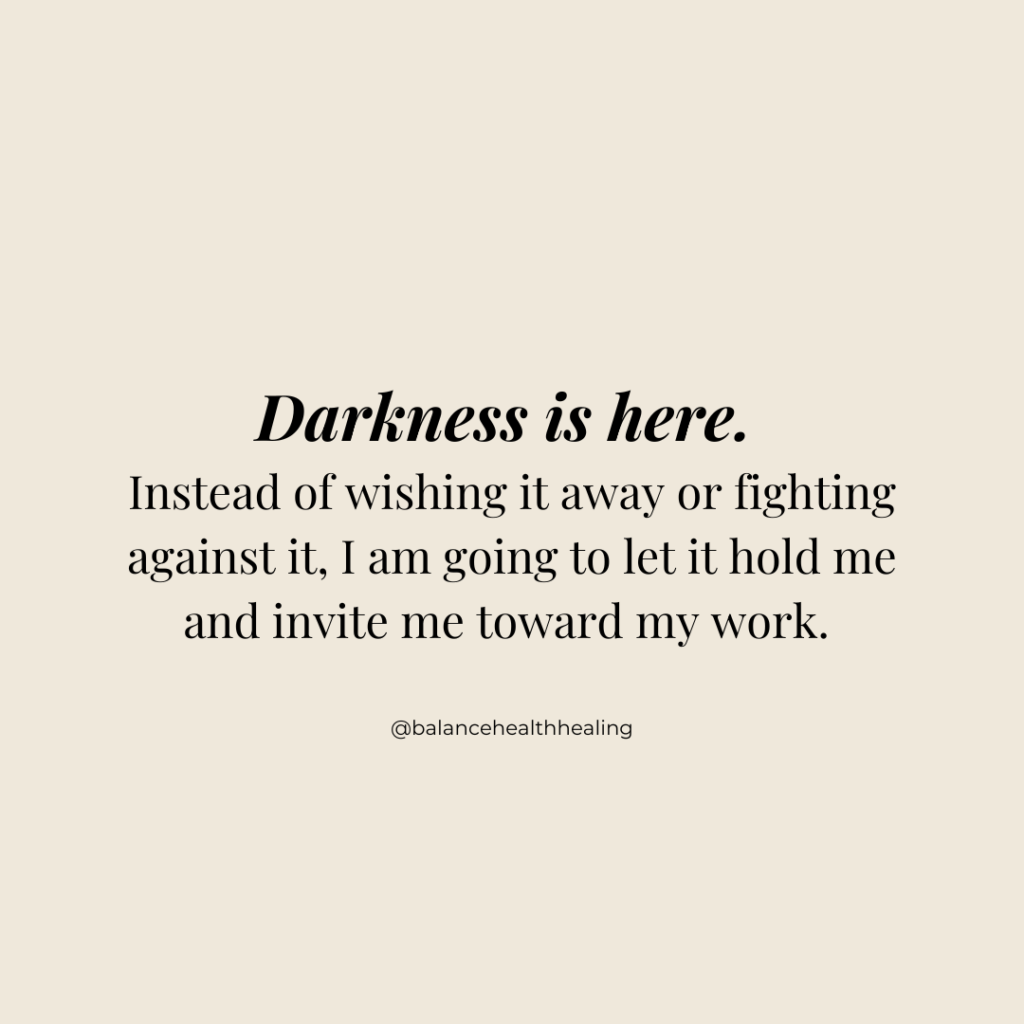 I like believing that darkness is a vital companion in our growth. I like believing that darkness is an insulator, a protector, and space holder for the hard work that is growing. It helps me reframe the sense of foreboding I feel as daylight savings ends and we are officially plunged into the darkness of impending winter. And not to be the harbinger of bad news, but for those of us in the northern hemisphere, we will continue to march toward more darkness until December 21
I like believing that darkness is a vital companion in our growth. I like believing that darkness is an insulator, a protector, and space holder for the hard work that is growing. It helps me reframe the sense of foreboding I feel as daylight savings ends and we are officially plunged into the darkness of impending winter. And not to be the harbinger of bad news, but for those of us in the northern hemisphere, we will continue to march toward more darkness until December 21
